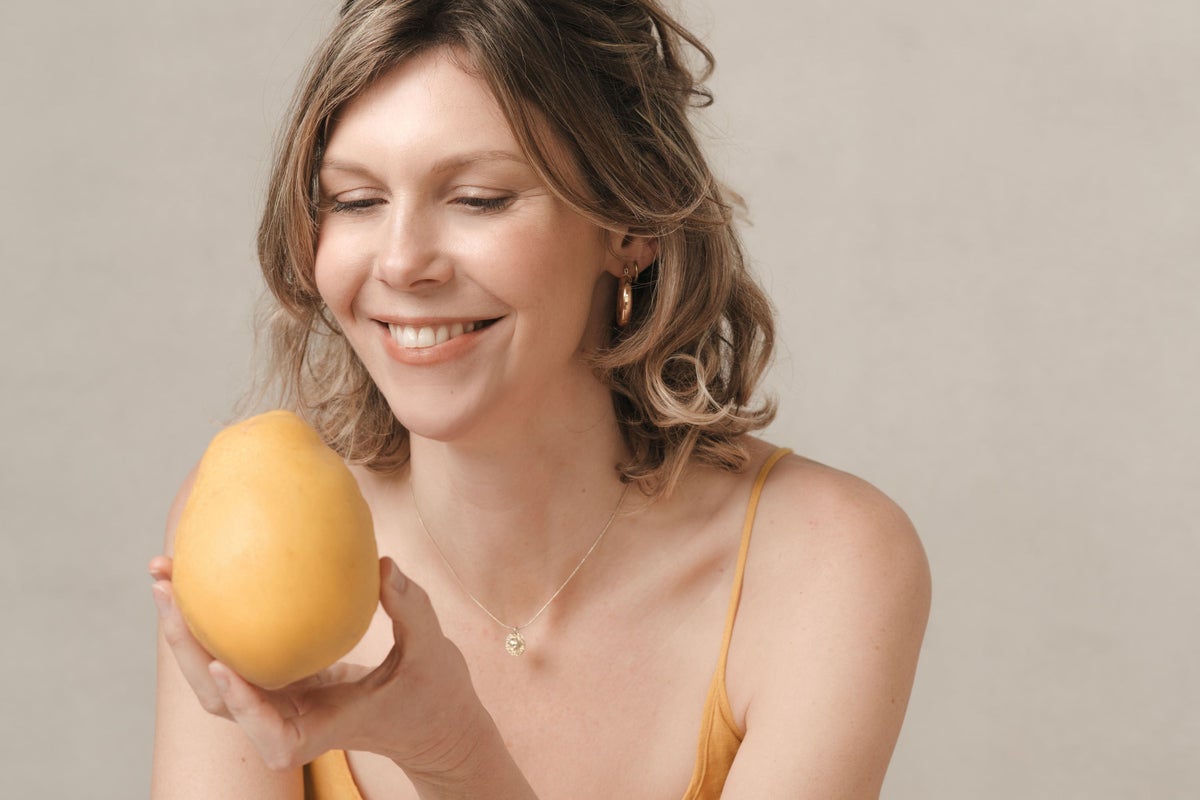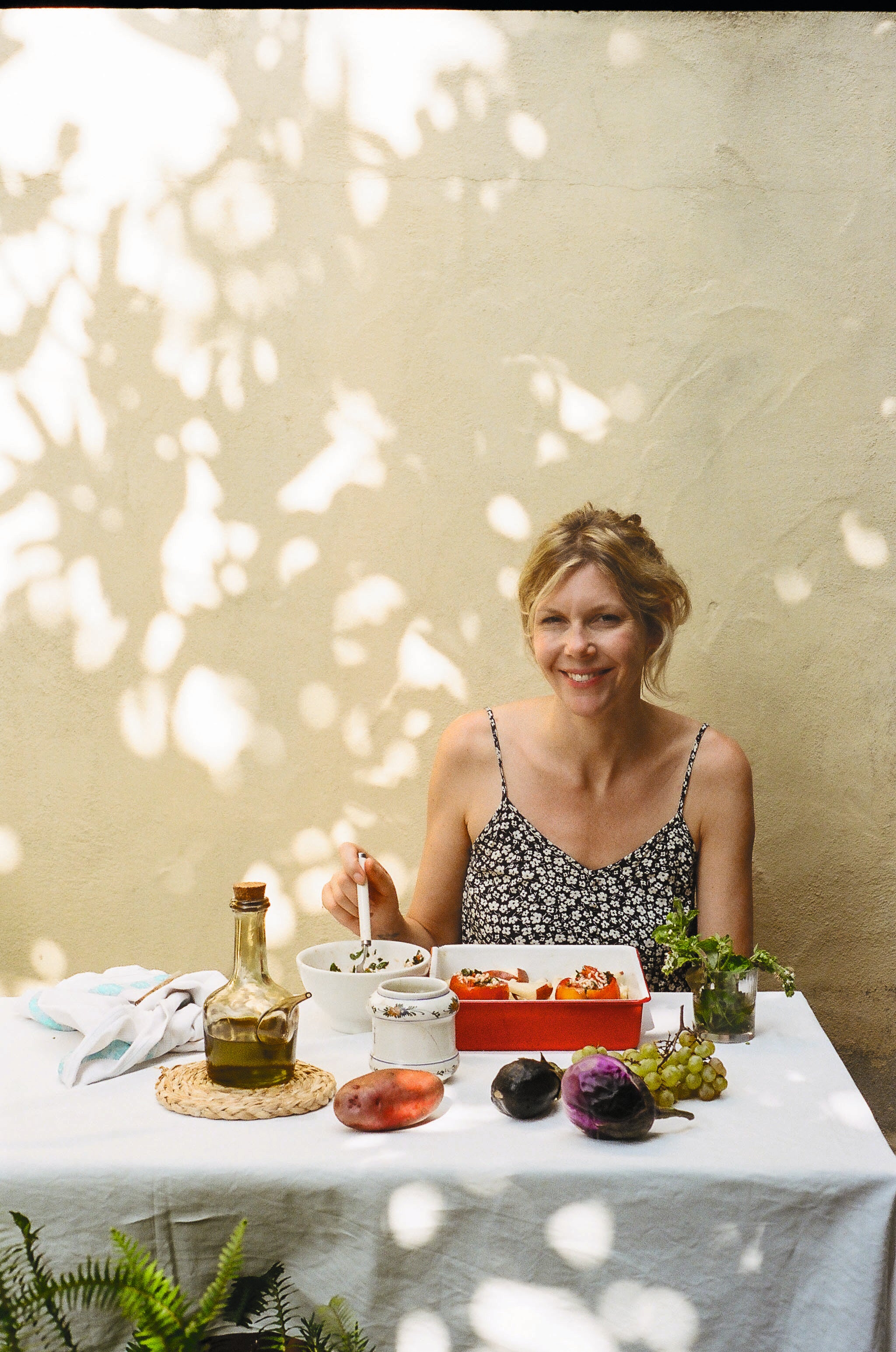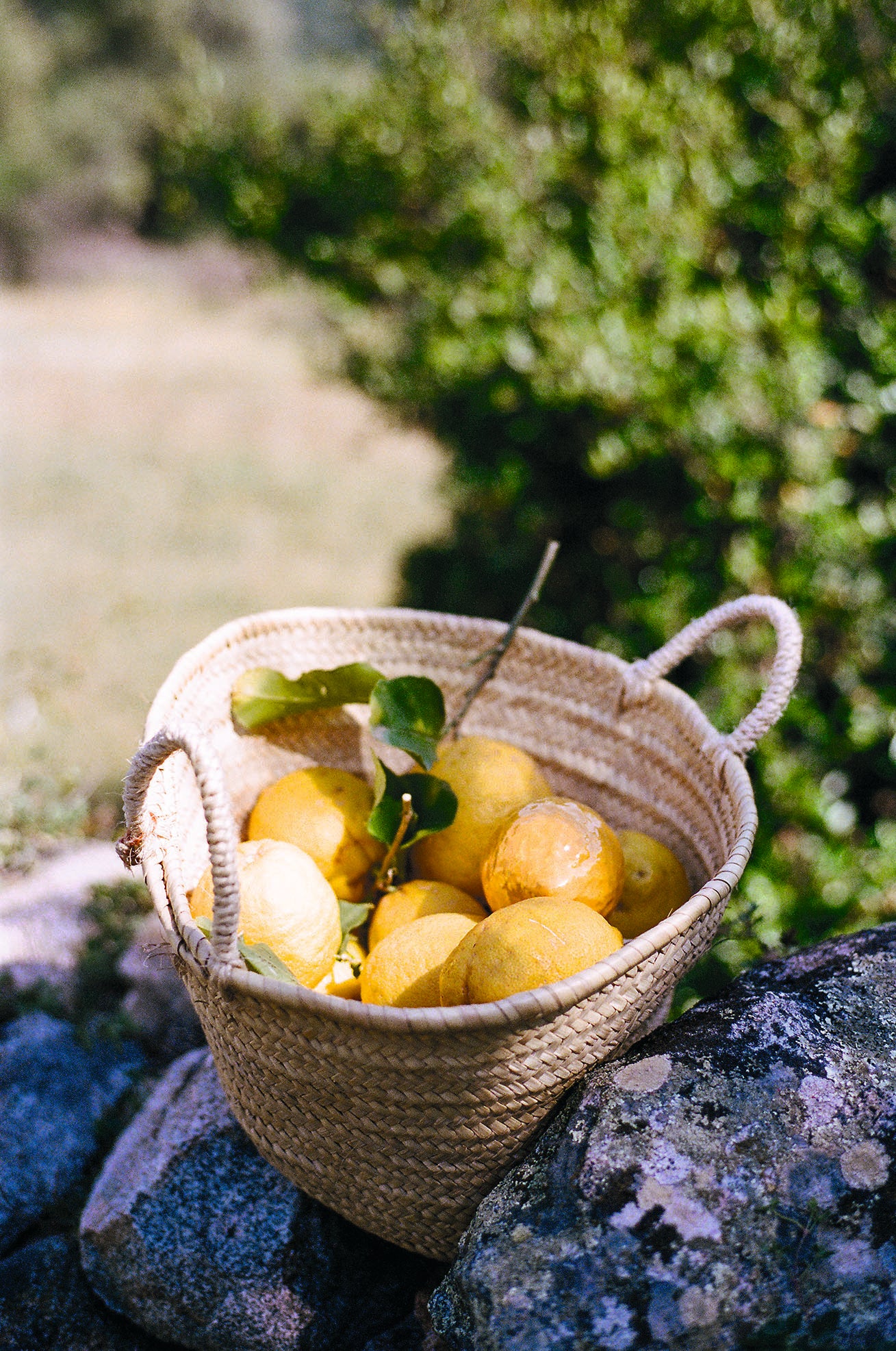Why I wrote a whole cookbook about lemons (yes, I’m obsessed)

“I’ve been scheming this book ever since I moved to Italy,” says food writer Letitia Clark, sounding really quite dastardly about it. Anchovies, spaghetti and lemons are, to her, the heart of Italian cooking, and she’d happily write single-subject books on all three.
But lemons had to come first, hence her new cookbook, For the Love of Lemons. As a former pastry chef, the citrus fruit was intrinsic to making all the sweet things in her “pastry canon”, and they’re also a bit of a family obsession.
“My grandma and my mum – my main cooking influences – were very passionate about lemons. My grandma used to put the classic plastic Jif lemon on my pancakes when I was little and my mum has been trying to grow her own lemon tree since I was a child,” says Devon-born Clark. “I remember her having this very sad sapling sitting in the corner that never fruited. She sent me a photo one time of her first-ever lemon, which was about the size of a hazelnut!”
Her summer holidays were usually spent in cheap and cheerful destinations like Cornwall, but when Clark’s family did go somewhere sunny, “I remember my mum making my dad screech the car to a halt and jumping out to pick up lemons that had fallen on the ground.”
Clark has lived in Sardinia for the past seven years and sees lemon trees every day, and yet, “whenever I see a lemon tree I’m like, ‘Oooh,’ every single time!” she says with a laugh.
She calls the mouth-puckering fruits “Christmas baubles”, an apt description when they are in season during winter. “[At that time of year] the rest of the landscape is looking less colourful and then you have these pops of colour, and the shape, how can you not love that perfect egg shape with two little teats on the end? They’re just incredibly pleasing,” she says. “The trees are so laden, they might have no leaves on but they have 4 billion lemons just dangling there, and they look so heavy on these delicate branches. It just feels like a feat of nature that they can even grow like that. There’s just something infinitely cheering about them.”
However, Clark’s own lemon tree is looking a little bit worse for wear at the moment. “It’s actually really sad. I’m in a bit of a depression because I think it’s got a disease,” she says mournfully. “I like to think things are symbolic and [husband] Lorenzo gave it to me as our wedding present, so the fact it’s sad makes me worry about my marriage!”

It has a few little shoots poking through though, so she’s hopeful they might have some lemons next year…
Clark reckons a whopping four or five trees worth of lemons were used in the making of her cookbook; crates and crates of them. “My [toddler] son was just about walking and was going round knocking all the lemons off and rolling them around the floor having a lovely time,” she says, remembering the day they shot the recipe photos. In fact, his first toy was a lemon.
Interestingly, she doesn’t think Italians appreciate lemons as much as visitors do. “Italians are so proud and passionate about their own cuisine, if you said to one, ‘Italian lemons are amazing,’ they’d be like, ‘Of course! They’re the best in the world’,” she explains, but they use lemons in cooking a lot less, and mostly in dolce (puddings).
“A lot of my recipes are not that traditionally Italian because I add lemon, so a classic pesto would never have lemon in it, but I like it way more with a lot of lemon zest,” notes Clark. “They almost never serve lemon with fish because they think it ruins the flavour.” Put it down to the fact “Italian flavours are very pure,” so the aromatics of the zest is beloved (hence why in Amalfi they add it to coffee), but the acidity of the juice is considered overwhelming.
Despite her idyllic, sun-drenched Instagram photos, Clark does have her trials and tribulations in the kitchen, and one major adversary: her oven. “I have this horrible oven and every day we discuss whether we should get rid of it,” she says jovially. “I kind of work with it, but it doesn’t really work with me.”
She has to roughly guess what the temperature is, and “if I need something to be really precise, I’ll go to my mother-in-law’s!

“It’s a difficult relationship, what can I say? I don’t love him,” she says. “I spend a lot of time browsing ovens online!”
Then there’s the moments of “old-school behaviour” she saw when working in professional kitchens. “There’s so much sexism in restaurants and it’s so old-fashioned in so many ways,” she says. Fortunately, she ended up working in some “very civilised restaurants”. The best she ever cheffed in was Skye Gyngell’s celebrated Spring restaurant in London. “She treated people with respect,” remembers Clark.“But that is definitely not the experience of many kitchens, and that wasn’t my experience in my early days.”
She pauses and adds with a laugh, “That’s all stuff for the memoir!” Which she’s currently writing. Clark also has grand plans to open an agriturismo – a farm with rooms – but in the meantime, has a summer of Sardinian food tours and talking about lemons ahead.
She hopes that after flicking through the book, readers will “look at the lemon a little differently and appreciate it”, especially the leaves, which are lemony, but a bit like a bay leaf and slightly herbal. “Food is something everybody has every day and it can be such a source of joy, pleasure and satisfaction,” she says. “There are not many things in life that have that power, so the lemon can do that for you.”
‘For the Love of Lemons’ by Letitia Clark (Quadrille, £28).
[title_words_as_hashtags



